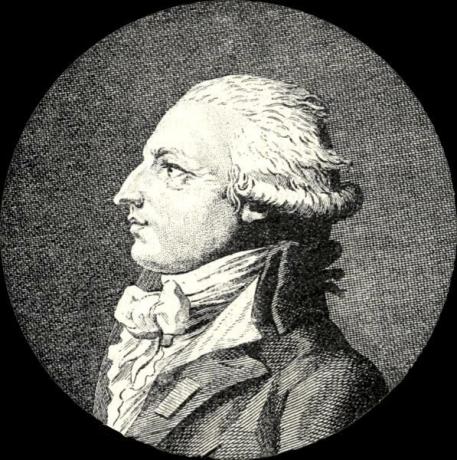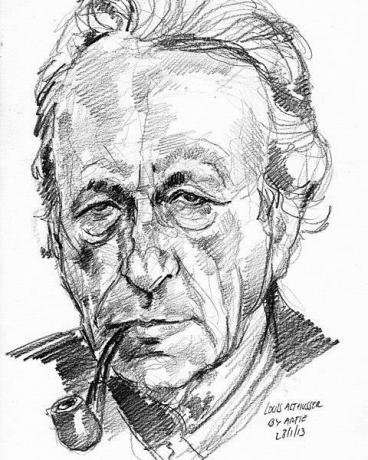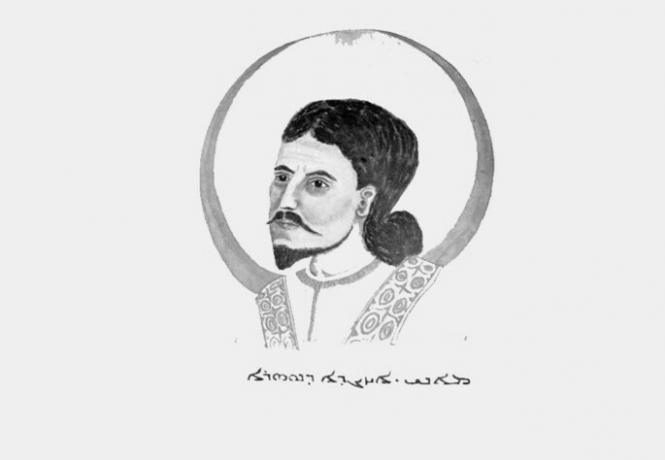The term "ideology" it is polysemic, that is, it has several meanings. That multiplicity of senses makes it difficult to accurately identify and conceptualize the word. Theoretically, ideology itself is almost as old as philosophy, having its beginnings traced back to Antique Classical, with the philosopher's thoughts Aristotle. However, the term was only created in modernity with the French philosopher Destutt de Tracy, gaining the scope of a science that would address the formation and construction of ideas.
You positivists, led by the French philosopher Auguste Comte, based their theories on the need for ideology as that science that would be capable of making what is abstract subject to a more rigorous study. However, a critical current of the term settled in the 19th century, proposing a vision that lasts until today.
Read too: Power - a concept widely discussed in contemporary Human Sciences
What is ideology?
O common sense understands ideology as a simple set of ideas or an idealization about something. However, ideology is much more than that. We can conceptualize ideology in two ways: the classical view and the critical view. At
classic view, the term has the meaning of a kind of science capable of methodically organizing and rigorously studying the set of ideas that make up human intellectuality. At critical view, ideology is an illusion created by a class to maintain the apparent legitimacy of a system of domination.
Brazilian philosopher Marilena Chaui wrote in her book What is ideology?, that the origin of the ideology is among the greeks, who, unaware of the debate that would be established more than 2,000 years later, separated in their intellectual life two types of activity: technical and practical activity, called poiesis, and the activity of free intellectual philosophical thought about ethics and politics, called praxis.
THE poiesis it was the activity of merchants, artists, artisans, soldiers and slaves, that is, it was work and technical production, which did not demand intellectual effort. THE praxisit was philosophy and intellectual care for politics and ethics, demanding intellectual effort. The latter was superior to the former and dealt with action supported by ideas.
The classical Greeks therefore valued ideas, and each of their philosophical postulates was proposed as being a unique and universal reality. Therefore, they couldn't see that there was a historical context and a personal worldview that made them think that way. You classical philosophers, like Plato and Aristotle, already had ideologies, but did not know.
Do not stop now... There's more after the advertising ;)
THE eyesightclassic of ideology originated with the modern French philosopher Tracy's Destutt. Tracy was enthusiastic about the ideals promoted by enlightenment and believed that the French Revolution it was the best way to bring about the necessary changes in French society so that the country could actually progress. He was a staunch anti-monarchist and was also considered a materialist thinker. For materialism, only concrete and material facts should take the lead for any understanding of the world, valuing science and rejecting metaphysics and religion or any other type of abstraction or idealism.

According to Tracy, the best way to study ideas in a scientific and historically well-placed way was through ideology. The French philosopher considered the "father" of Sociology and founder of positivism, Auguste Comte, affirmed the value of this science proposed by Destutt de Tracy, seeing it as the main means of advancement of thought in the abstract field of ideas.
Ideology for Karl Marx
The German Philosopher and Sociologist Karl Marx, considered the founder of scientific socialism and creator of the dialectical historical materialist method of social analysis, was the one who wove a critical look at ideology. Based on Marx's critical view, the term started to be designated as something negative. Marxist historical materialism did not see the possibility of separating the production of ideas from reality historical and material, arguing that ideas arise in a given context and for a given reason.
For Marx, ideology then became instrument of ruling class domination (the bourgeoisie) over the dominated class (the proletariat). There was, according to the philosopher, an infrastructure (the economy) that maintained the capitalist system of domination. This infrastructure was supported and legitimized by a superstructure, which would consist of the State, the politics, at culture, in religion and ideologies.
Marx believed that there was the creation of a great ideological apparatus to make it appear that maintenance and the predominance of the interests of the bourgeoisie over the interests of the proletariat was legitimate, moral and right. With that, the State emerged as a mechanism of domination with the political system. Culture, religion and ideology were the means of cultural domination, which made the proletariat accept domination. Ideology was the way to keep people calm through a illusion: that capitalism and private property were fair means.
The Contemporary French Marxist Philosopher Louis Althusser it improved the critical view of ideology in the 20th century, starting from the Marxist view. For Althusser, ideology operates through a speechgap. It is an apparently real, valid speech that is not entirely incorrect but leaves gaps. The gaps left by the ideological discourse result in loopholes for the false legitimation of what is not legitimate. The incomplete discourse affirms real things and, therefore, seems real, but leaves gaps where unreal things fit, appearing to be true but being, in reality, false.

What is ideology for?
Departing from the classical conception proposed by Destutt de Tracy, ideology would serve to understand and historically organize the set of ideas formulated by society. For the critical aspect, ideology would serve to maintain the apparent veracity of a false discourse, in order to maintain a domination structure about people or making an idea false or small as hegemonic.
We can illustrate with some cases to make understanding the ideology easier:
- Meritocracy: in the liberal capitalist system, marked by class inequality and the domination of a social class stronger, an ideology of merit was created. In this system, it is believed that individual effort makes inequality. Those who study more, work more and have more developed administrative qualities manage to overcome economically. Consequently, the poorest layers would be composed of people who do not deserve the wealth for not having tried hard enough to get wealth or not knowing how to manage the cash.
- Gender Ideology: from the 20th century onwards, people began to discuss more about gender issues due to the impulse given by the movements. feminists to the discussion of the role of women in society. With that, it started to discuss what it is to be a woman and what it is to be a man, and some theories reached the conclusion of that being a man and being a woman is not linked to biological sex, but rather to a question of social roles and cultural. This became a legitimacy for transsexual people to come out as belonging to an opposite gender. As a way of disqualifying these theories, conservative sectors of society called gender theories “gender ideology”, thus managing to disqualify gender discourse as a false discourse within the scope of language. It must be made clear that a person who agrees with gender theories should never use the expression “gender ideology”, as this means automatic disapproval of the discourse on gender.
See too:Domination for Max Weber – acceptance and subordination
Types of ideology
the same way as if must be careful with the use of the term ideology allied to the term gender, one must be careful with the use of the term ideology combined with other political terms. If you agree with a kind of political vision, never call it an ideology. If you think that such a theory comprises a set of false, illusory or misleading ideas, then it is justified to call it an ideology.
However, common sense calls any kind of discourse, theory or set of ideas an ideology, thinking that any political vision can be called a political ideology. Therefore, a set of "ideologies" was created, some of which are set out below:
- Capitalist ideology;
- liberal ideology;
- Conservative ideology;
- Communist ideology;
- anarchist ideology;
- Democratic ideology;
- Nazi ideology;
- Fascist ideology.
by Francisco Porfirio
Philosophy teacher


